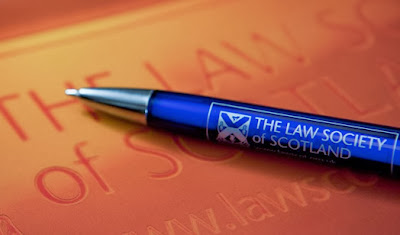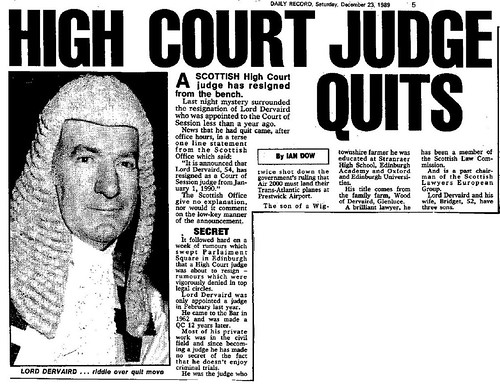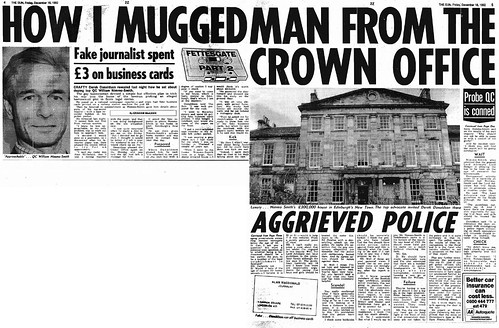 Law Society led arbitration choked up with property & construction disputes. A SURVEY of Scottish Arbitration reveals property and construction disputes continue to dominate the subject matter of arbitrations in Scotland.
Law Society led arbitration choked up with property & construction disputes. A SURVEY of Scottish Arbitration reveals property and construction disputes continue to dominate the subject matter of arbitrations in Scotland.
The survey also claims initiatives have been taken in sectors usually dominated by smaller high street and rural law firms – such as agricultural and family matters.
Work on the survey was led by the University of Aberdeen and legal firm Burness Paull LLP – who are currently being sued for millions of pounds over their role in the collapse of the £400 million Heather Capital hedge fund, run by Spanish based Gregory King, originally from Glasgow.
Heather Capital raised hundreds of millions in international finance to lend against Scottish property before going under in 2010. Most of its money has been ‘lost’' to investors, even though the Law Society of Scotland had been keeping an eye on client accounts of certain law firms which appear to have funnelled millions of pounds of money through their client accounts to Heather Capital related entities.
Burness Paull - one of the two biggest law firms in Scotland - is understood to have acted for at least one of the businesses in Mr King's network of companies. King is one of four people currently under investigation by Police Scotland and the Crown Office.
The Law Society of Scotland also gave support to the project without declaring it has a vested business interest in the project and is one of the main sponsors of the Scottish Arbitration Centre – backed by the Scottish Government, the Chartered Institute of Arbitrators, the Faculty of Advocates, the Law Society of Scotland and the Royal Institute of Chartered Surveyors, partially funded by public money.
The survey concludes use of arbitration is in line with expectations following the Arbitration (Scotland) Act 2010, however cases returning to the court rolls appear to indicate Scottish arbitration is failing the grade, and giving false hope to litigants who may secure more advantageous hearings & settlements in the courts.
These are among the findings of the first report of the Scottish Arbitration Survey, covering the period from 1 July 2013 to 30 June 2014. The report provides statistics on arbitrations in Scotland during that period, along with procedural trends and attitudes. It also contains a commentary on the evolution of arbitration since the Arbitration (Scotland) Act 2010, including the role of the courts and the developing scope for the use of arbitration in Scotland.
The research found that around 22 arbitrations with a Scottish seat occurred during the period covered, across a wide range of dispute value. Most employed single arbitrators rather than tribunals; they generally followed the unamended Scottish Arbitration Rules, though there was use of bespoke rules; they adopted various forms of procedure; and they generally reached an award in less than 12 months.
The survey, written by parties with a business interest in expanding the poorly regulated Scottish arbitration business, claim speed, confidentiality, procedural flexibility and technical specialism were seen as potential advantages in using arbitration.
It is intended to follow up the report with further surveys, to provide statistical information on trends over time. The next survey will be undertaken in early 2016 to cover the calendar year 2015.
The organisers said they hoped the survey would provide a valuable resource to arbitrators and practitioners, and to those who promote arbitration. "As well as providing a measure on the number of arbitrations occurring, it provides an insight into attitudes to dispute resolution and to the practice of arbitration that will be helpful to those who practise as decision makers and representatives in the resolution of disputes", they commented. "It will also provide guidance to those who do not participate directly in dispute resolution, but who advise clients on alternative dispute resolution mechanisms, weighing up the important factors in adopting an effective and commercially pragmatic approach.
"Once interested parties have had an opportunity to read the Report over the summer period, we will arrange presentations and discussions on the lessons that might be drawn from the information and statistics collected. Amongst those will be a seminar in November in the Chartered Institute of Arbitrators (Scottish Branch) seminar series.
"We will look at ways to optimise the survey over time, and would welcome any feedback. We are grateful to all those who participated in the survey and hope that you will continue to support future surveys, so that Scotland can benefit from sound statistical data."
Legal insiders continue to maintain litigants can secure more fairer and permanent outcomes using the more accountable courts system instead of relying on closed door negotiations which are often fraught with difficulties and failures of arbiters to declare vested interests in cases before them.
Questionable arbitration hearings the survey did not cover include instances where -
* an arbitration specialist involved in a case relating to a dispute with a multi national energy company took a payment from the energy company before both sides concluded an agreement. The agreement has now ended up subject to legal action;
* a case of an arbitration specialist failing to reveal her husband was a board member of a company involved in an arbitration she was currently engaged in;
* a recent case where an arbitration expert failed to reveal he was employed by one of the parties involved in an arbitration relating to a multi million pound property dispute.








